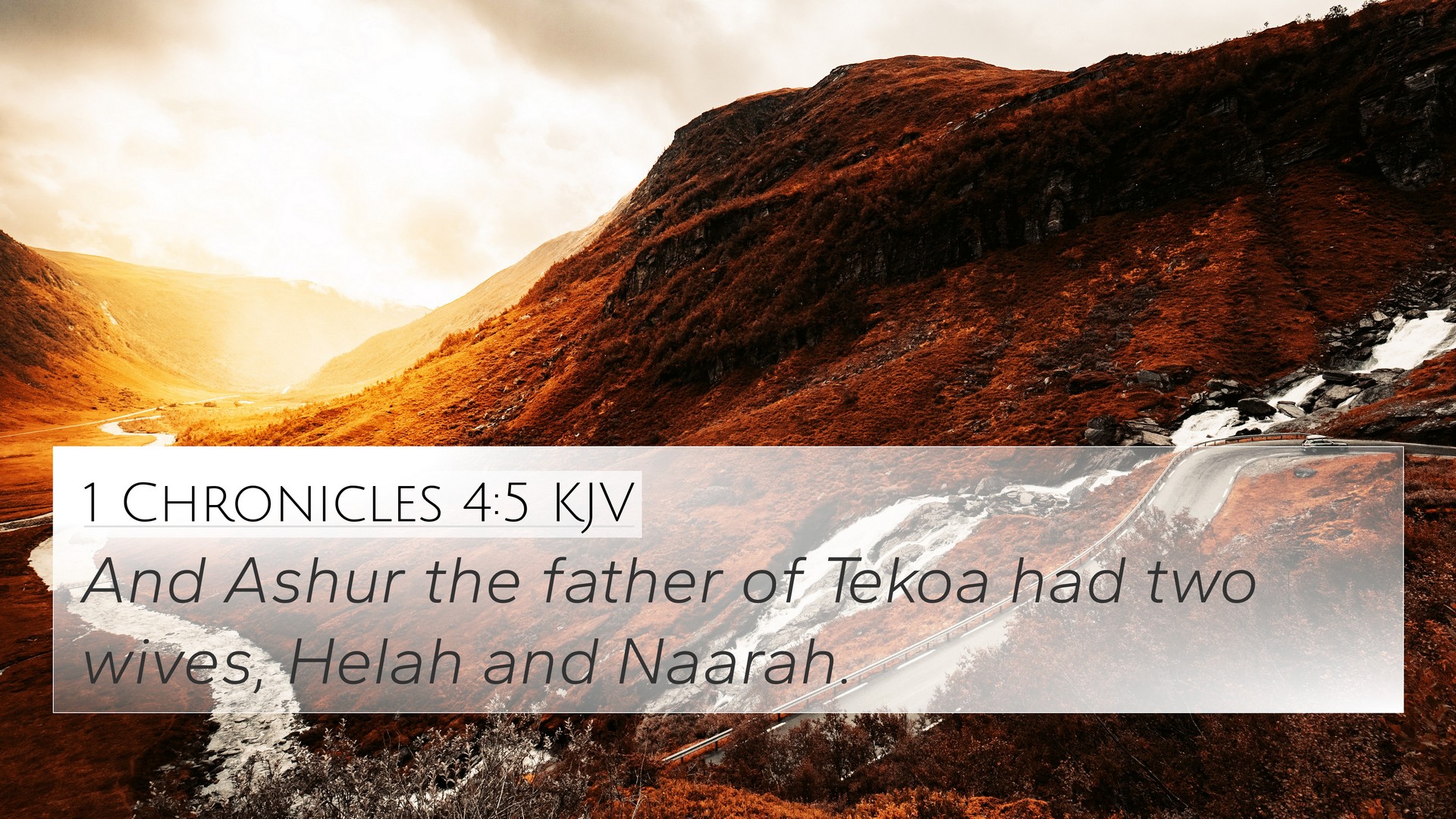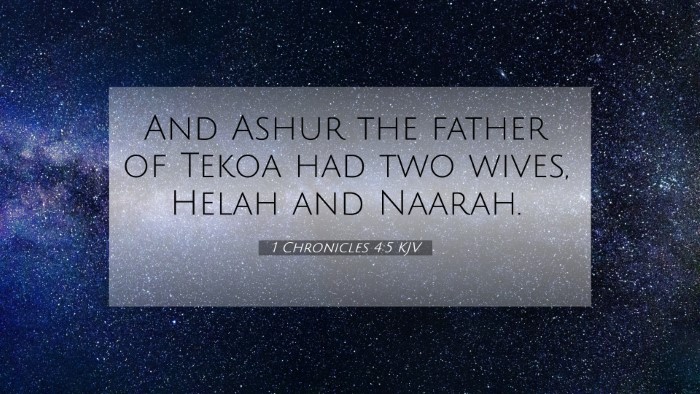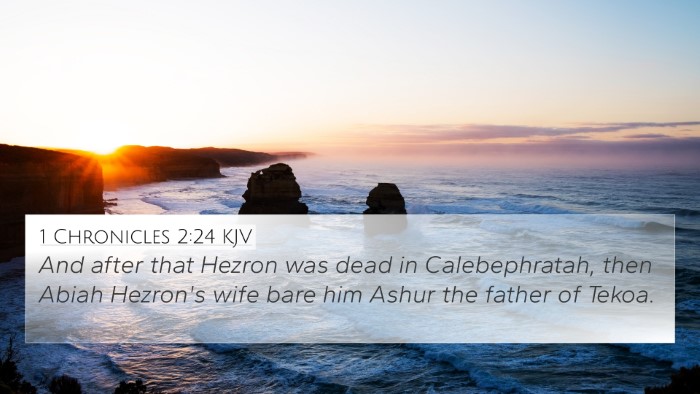Understanding 1 Chronicles 4:5
Verse Text: "And Ashhur, the father of Tekoa, had two wives, Helah and Naarah."
The verse lists a prominent figure from the tribe of Judah, Ashhur, and highlights his family connections. This verse is relatively straightforward but can lead to deeper explorations of the genealogical framework within the Biblical narrative.
Summary of Insights from Commentaries
This verse, while short, is rich in implications and contextual relevance. Commentators such as Matthew Henry, Albert Barnes, and Adam Clarke explore various dimensions of its meaning:
- Genealogical Importance: The listing of Ashhur signifies the importance of lineage in the Old Testament. Matthew Henry emphasizes that genealogies serve as a record of God’s covenant for His people.
- Role of Women: The mention of Ashhur's wives, Helah and Naarah, indicates the significance of women in the lineage. Albert Barnes points out that the inclusion of names in genealogies acknowledges their contributions and status.
- Historical Context: Adam Clarke connects the family structure to the larger societal organization of Israel, reflecting on how families played a pivotal role in the nation’s identity.
- Theological Implications: Genealogies often reflect God's faithfulness to His promises. Each name carries the weight of God's plan unfolding through history, as noted in Matthew Henry's commentary.
- Cultural Practices: The practice of polygamy, indicated in this verse, prompts discussions on cultural practices during the time, allowing us to understand the complexities of familial relationships in ancient Israel (Barnes).
Cross-References and Thematic Connections
This verse can be connected with several other scriptures to draw a more comprehensive understanding of its themes:
- Genesis 38:30: Discusses the lineage of Judah, connecting to the importance of descendants.
- 1 Chronicles 2:4: Gives context to the families of Judah.
- Matthew 1:3-6: Contains the genealogy of Jesus, showing the fulfillment of these early genealogical records.
- Ruth 4:18-22: Discusses the lineage leading to David, echoing the importance of genealogy.
- Deuteronomy 7:3-4: Highlights God's commandments concerning intermarriage, providing context for the mention of multiple wives.
- Malachi 2:14: Discusses the sanctity of marriage, framing the cultural practices mentioned in this verse.
- Hebrews 7:14: Discusses the priesthood through Judah, linking the genealogy to New Testament themes.
Tools and Resources for Deeper Study
Exploring the connections and meanings of Biblical texts can be enhanced with various resources:
- Bible Concordance: Tools that help locate scriptures related to specific themes or verses.
- Bible Cross-Reference Guide: Handy references that allow for easy linking of scripture topics.
- Comprehensive Bible Cross-Reference Materials: Resources that provide extensive connections between verses.
Practical Applications
In personal study or sermon preparation, understanding the connections and cross-references of verses like 1 Chronicles 4:5 can enhance one's grasp of biblical truths:
- Identifying connections between Old and New Testament through genealogies.
- Exploring cross-referenced themes in the Bible can provide a greater understanding of God’s plan.
- Using lessons from Psalms and other books to enrich interpretations of genealogies.
Conclusion
1 Chronicles 4:5 serves as a valuable reference point in the rich tapestry of Biblical genealogy. While it may seem a simple historical note, deeper examination reveals the foundational role of lineage in conveying God's purpose. By cross-referencing this verse with others, believers can uncover the connections between historical narratives and theological implications that resonate through both the Old and New Testaments.
This process of cross-referencing Biblical texts not only enriches our understanding but also deepens our appreciation for Scripture as a cohesive whole.



